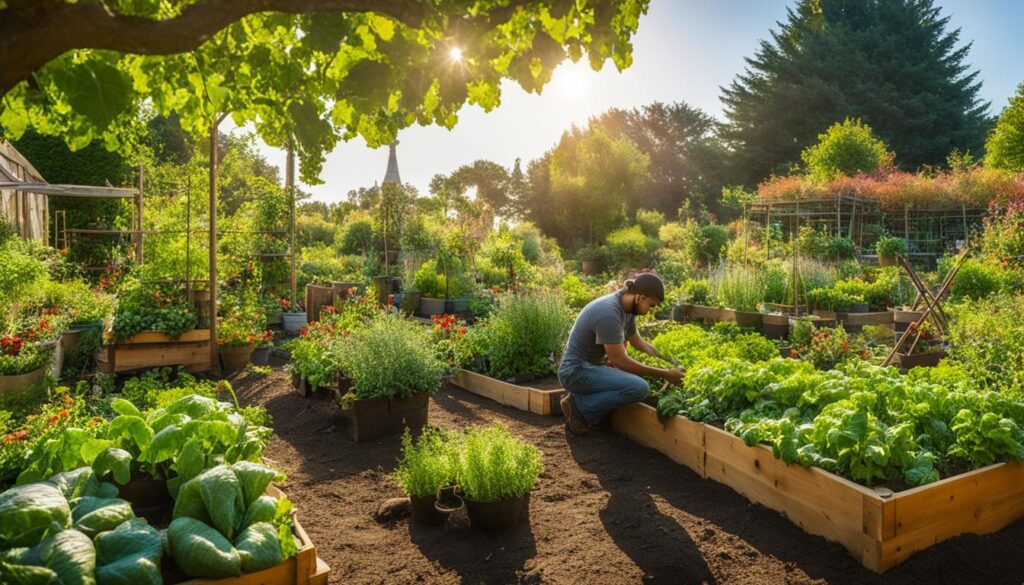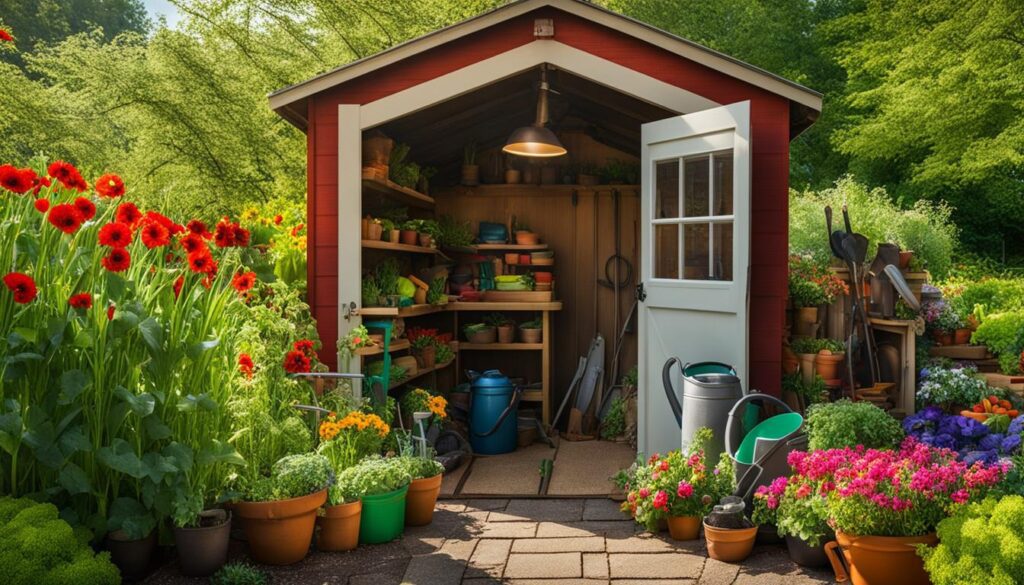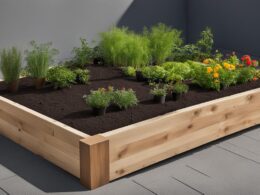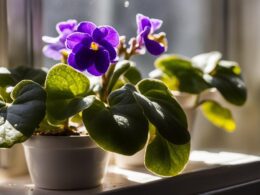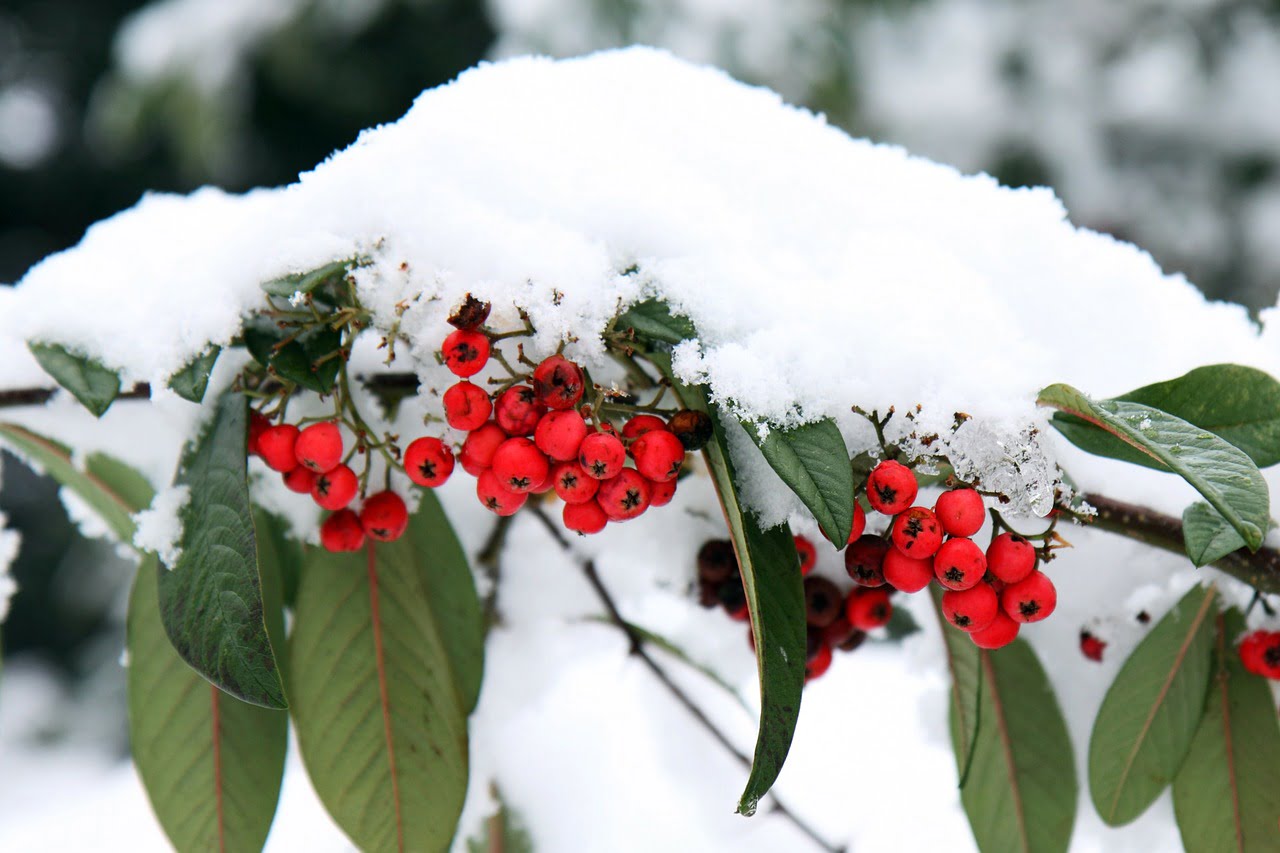Gardening year round can be a challenging endeavor, especially if you live in an area with short growing seasons and harsh weather conditions. But fear not! Our expert guide is here to help you master the art of maintaining a lush and vibrant garden throughout the year. No matter if you’re facing a cold climate or limited space, we’ve got valuable tips and insights from seasoned gardeners that will ensure your garden thrives in any season.
Key Takeaways:
- Extend your growing season with the right tools and techniques.
- Create a protective barrier against frost, pests, and harsh weather conditions.
- Invest in lightweight row covers, shade cloth, and greenhouse-quality plastic.
- Choose the right materials for creating supports, such as PVC or galvanized electrical conduit.
- Maintain your garden year round by regularly inspecting for pests, providing proper nutrition, and monitoring soil moisture levels.
The All-Seasons Approach to Edible Gardening
Niki Jabbour, a renowned vegetable gardener and the host of the radio show “The Weekend Gardener,” has developed an all-seasons approach to edible gardening. Despite living in Nova Scotia, where the growing season is short and frost can linger until late May, she has found ways to extend her growing season and achieve abundant harvests year round. Jabbour’s approach involves using a variety of fabrics and supports to create a protective barrier against frost, pests, and harsh weather conditions. By experimenting with different techniques, she has not only extended her growing season but also learned how to outsmart common garden pests. Jabbour’s expertise in all-seasons gardening is documented in her book “Growing Under Cover: Techniques for a More Productive, Weather-Resistant, Pest-Free Vegetable Garden.”
By adopting an all-seasons approach to edible gardening, you can maximize your harvest and enjoy fresh produce throughout the year. The key to this approach lies in creating an environment that protects your plants from unpredictable weather and extends the growing season. Jabbour suggests using various fabrics, such as row covers and shade cloth, to shield your plants from frost, excessive sunlight, and pests. These materials act as a shield, creating a microclimate that provides the ideal conditions for plant growth.
Jabbour’s all-seasons approach also incorporates the use of support structures, like hoop tunnels, to enhance protection and create a favorable growing environment. Hoop tunnels not only help to insulate plants and retain heat but also provide a sturdy structure for covering them with fabric. This allows for easy access and ensures that the covers remain in place during high winds or heavy rain. With these techniques, you can effectively extend your growing season and enjoy a bountiful harvest, even in regions with challenging climates.
Benefits of the All-Seasons Approach:
- Extended growing season: By using protective covers and supports, you can start planting earlier in the spring and continue harvesting well into the fall.
- Protection from harsh weather: The all-seasons approach helps shield your plants from frost, extreme temperatures, heavy rain, and wind, ensuring their survival and productivity.
- Reduced pest damage: The use of fabrics and supports creates a physical barrier that prevents pests from reaching your plants, reducing the need for chemical pesticides.
- Increased yield: By providing a controlled environment for your plants, you can optimize their growth and maximize your harvest, resulting in a greater abundance of fresh produce.
By following Niki Jabbour’s all-seasons approach to edible gardening, you can overcome the challenges of short growing seasons and harsh weather conditions. With the right tools, techniques, and commitment, you can extend your growing season, protect your plants, and enjoy a diverse and plentiful harvest throughout the year.
Choosing the Right Tools for Year-Round Gardening
Successful year-round gardening requires the use of the right tools and materials to protect your plants from harsh weather conditions. Niki Jabbour, a renowned vegetable gardener, recommends investing in a variety of fabrics and materials to create effective garden covers and supports. These tools will help you extend your growing season and ensure the health and productivity of your garden throughout the year.
Garden Covers
Garden covers play a crucial role in protecting your plants from frost, pests, and excessive sunlight. Lightweight row covers, such as Agribon AG-19, are excellent for providing insect protection and light frost insulation while allowing 85% of the light to filter through. For additional shade during hot summer months, knitted shade cloth with 30 to 50% shade is essential. It blocks excessive sunlight and helps maintain a favorable microclimate for your crops.
Support Hoops
Support hoops are essential for creating structures that hold your garden covers in place. Half-inch PVC conduit or half-inch galvanized electrical conduit can be used to create sturdy hoops that straddle your beds. These materials provide the required support and durability to withstand varying weather conditions. Additionally, using greenhouse snap clamps to secure your covers to the supports will ensure a tight fit and protect your plants from wind damage.
Other Essential Tools
In addition to garden covers and support hoops, there are other tools that can greatly benefit year-round gardening. Cold frames, which are essentially mini greenhouses, provide extra protection during colder months. A good-quality garden hose and watering can help you provide adequate moisture to your plants, while a garden cart or wheelbarrow makes transporting tools and materials more convenient. Investing in these tools will make your year-round gardening journey easier and more enjoyable.
With the right tools and materials, you can create a favorable environment for your plants and extend your growing season. Choose durable and quality options that can withstand the elements, and always prioritize the health and productivity of your garden throughout the year.
Growing Your Favorite Herbs and Vegetables Organically
One of the most rewarding aspects of year-round gardening is the ability to grow your favorite herbs and vegetables organically. By embracing organic gardening practices, you can ensure that the food you produce is free from harmful pesticides and chemicals, providing you with a healthier and more sustainable source of fresh produce.
When it comes to growing organically, it’s important to start with the right plants. Choose varieties that are naturally resistant to common pests and diseases, reducing the need for chemical interventions. Additionally, consider companion planting, which involves growing certain plants together to enhance growth and deter pests. For example, planting marigolds near your vegetables can help repel harmful insects.
Another key aspect of organic gardening is maintaining healthy soil. Focus on building and enriching your soil with compost, organic matter, and natural fertilizers. This will provide essential nutrients to your plants and help them thrive. Avoid the use of synthetic fertilizers, which can harm beneficial soil microbes and pollute the environment.
Finally, organic gardening requires careful and consistent pest management. Regularly inspect your plants for signs of pests and take appropriate action, such as manually removing pests or using organic insecticides and repellants. Encouraging natural predators, such as ladybugs and lacewings, can also help control pest populations in your garden.
Benefits of Organic Gardening
- Healthier, pesticide-free produce
- Reduced environmental impact
- Enhanced soil fertility and long-term sustainability
- Support for beneficial insects and wildlife
- Safer gardening practices for you and your family
Organic gardening is not only about what you leave out – synthetic pesticides and fertilizers – but also about what you put in. By adopting organic practices, you are nurturing the health of your plants, the vitality of your soil, and the well-being of your entire garden ecosystem.
Tips for Growing Organic Herbs and Vegetables
- Choose disease-resistant varieties
- Practice companion planting
- Enrich your soil with organic matter and compost
- Rotate crops to prevent disease buildup
- Maintain proper watering and drainage
- Implement organic pest control methods
- Encourage beneficial insects and wildlife
By following these tips and principles of organic gardening, you can cultivate a thriving garden filled with your favorite herbs and vegetables. Not only will you enjoy the satisfaction of growing your own food, but you will also contribute to a healthier and more sustainable future for our planet.
Essential Materials for Year-Round Gardening
To successfully maintain a garden year round, you need the right materials. Niki Jabbour, an expert in all-seasons gardening, recommends a few essential materials that will help protect your plants and extend your growing season. These materials include lightweight row covers, shade cloth, and greenhouse-quality plastic.
Lightweight Row Cover
A lightweight row cover, such as Agribon AG-19, is a must-have for year-round gardening. This fabric provides insect protection and light frost insulation, allowing 85 percent of the light to filter through. It creates a protective barrier against pests and harsh weather conditions while still allowing your plants to receive adequate sunlight.
Shade Cloth
In hot summer months, a knitted shade cloth with 30 to 50 percent shade is essential for protecting your plants from excessive sunlight. This cloth provides shade and helps regulate the temperature, preventing heat stress and sunburn on sensitive plants. It is lightweight, easy to install, and durable, making it an excellent choice for year-round gardening.
Greenhouse-Quality Plastic
When it comes to creating mini hoop tunnels and cold frames, greenhouse-quality plastic is a must. Look for plastic that is UV-treated and rated for a long lifespan. This durable material provides excellent insulation and protects your plants from frost, wind, and other extreme weather conditions. It is essential for creating a favorable microclimate for your crops.
These essential materials will help you create a favorable environment for your plants and protect them throughout the year. Whether you are a beginner or an experienced gardener, investing in these materials will ensure the success of your year-round garden.
Choosing the Right Support for Garden Covers
Garden covers are essential for protecting your plants from harsh weather conditions, pests, and other potential threats. To ensure that your garden covers provide optimal protection and support, it’s important to choose the right materials for creating supports. Here are some options to consider:
Hoop Tunnels
Hoop tunnels are a popular choice for creating garden covers. They provide a sturdy framework that can support various types of covers, including row covers and shade cloth. When building hoop tunnels, you can use materials such as half-inch PVC conduit or half-inch galvanized electrical conduit. These materials are durable and can withstand the elements, ensuring your garden covers stay in place even during strong winds or heavy rain.
PVC Conduit
PVC conduit is lightweight and easy to work with, making it a convenient choice for creating garden supports. It is also cost-effective, making it an ideal option for those on a budget. PVC conduit can be easily bent into the desired shape to create hoops for your garden covers. Keep in mind that PVC conduit may not be as strong as other materials, so it’s important to choose the appropriate size and thickness to ensure adequate support.
Galvanized Electrical Conduit
Galvanized electrical conduit is a more heavy-duty option for creating garden supports. It offers greater durability and strength, making it suitable for larger garden covers or areas with harsh weather conditions. Galvanized electrical conduit is resistant to rust and corrosion, ensuring long-lasting support for your garden covers. When working with galvanized electrical conduit, it’s important to use the appropriate tools and techniques to cut and shape the material.
When constructing supports for your garden covers, it’s important to consider the weight of your covers and the level of durability required. Additionally, using greenhouse snap clamps to secure the covers to the supports will ensure a tight fit and prevent damage from wind or pests. By choosing the right support materials, you can ensure that your garden covers provide the necessary protection for your plants, allowing them to thrive year round.
| Support Material | Pros | Cons |
|---|---|---|
| PVC Conduit | Lightweight | May not be as strong as other materials |
| Galvanized Electrical Conduit | Greater durability and strength | More expensive |
Maintenance and Care for Year-Round Gardens
Maintaining a year-round garden requires consistent care and attention. To keep your garden thriving throughout the seasons, follow these essential maintenance tips:
Protecting Your Garden from Pests
Pests can wreak havoc on your plants and undo all your hard work. Implement preventive measures such as companion planting, which involves interplanting pest-repellent plants with your crops. Additionally, regularly inspect your plants for any signs of pests or disease. If you spot any issues, take immediate action to minimize the damage. Organic pest control methods, like handpicking insects and using homemade sprays, can be effective and safe for your garden.
Watering and Soil Care
Proper watering is crucial for the health of your plants. Monitor the moisture levels in the soil and water your garden as needed. Avoid overwatering, which can lead to root rot, and drought stress by providing a consistent and appropriate amount of water. Adding organic matter, such as compost and mulch, to your soil will improve its structure, fertility, and water-holding capacity. Regularly weed your garden to prevent competition for nutrients and water.
Regular Inspections and Maintenance
Regularly inspect your garden for any signs of nutrient deficiencies, diseases, or other issues. Catching problems early will allow you to take prompt action and prevent further damage. Keep an eye out for yellowing leaves, spots, or wilting plants. Test your soil periodically to determine its pH level and nutrient content. Adjustments can be made by adding appropriate amendments to optimize the soil’s fertility. Regularly prune your plants to encourage healthy growth and improve air circulation.
By implementing these garden care tips, you can protect your year-round garden and ensure its productivity and longevity. Paying close attention to your plants’ needs, protecting them from pests, and providing adequate water and nutrients will result in a flourishing garden that rewards your efforts throughout the year.
Can I Use Your Expert Gardening Guide to Improve my Herb Garden Growth?
Yes, you can use our expert gardening guide to improve your herb garden growth. Our guide provides detailed information on how much sun needed for different types of herbs to thrive. By following our recommendations, you can ensure that your herbs get the right amount of sunlight for optimal growth.
Conclusion
Gardening year round is a rewarding and fulfilling endeavor that can be achieved with the right tools, techniques, and dedication. By following the expert advice and tips provided in this guide, you can extend your growing season, protect your plants from pests and harsh weather conditions, and enjoy a lush garden all year long.
To successfully maintain a garden year round, it is essential to choose the appropriate garden covers and provide the necessary support. Investing in lightweight row covers, shade cloth, and greenhouse-quality plastic will create a favorable environment for your plants and protect them from pests and extreme weather.
Maintaining regular care and attention is crucial for the health and productivity of your year-round garden. Regularly inspecting your garden for pests and disease, removing weeds, providing proper nutrition, and monitoring soil moisture levels are all important aspects of garden maintenance. By implementing these year-round gardening tips, you can extend your growing season and maximize the success of your garden.
Whether you are a novice gardener or have years of experience, this comprehensive guide equips you with the knowledge and skills to master the art of gardening year round. Start implementing these strategies today and witness the joy of a thriving garden in every season.
FAQ
Is gardening year round possible?
Yes, with the right tools and techniques, you can maintain a productive garden all year long.
How can I extend my growing season?
By using protective barriers like fabrics and supports, you can protect your plants from frost, pests, and harsh weather conditions, allowing you to grow for longer.
What materials should I invest in for year-round gardening?
Lightweight row covers, knitted shade cloth, and greenhouse-quality plastic are essential materials for creating a favorable environment for your plants.
How do I choose the right support for garden covers?
Options like PVC conduit, galvanized electrical conduit, and wire can be used to create hoops that support your covers. The choice depends on the weight and durability needed.
What should I consider when maintaining a year-round garden?
Regularly inspect your garden for pests and disease, remove weeds, provide proper nutrition, monitor soil moisture levels, and adjust your garden covers to fluctuations in temperature.
Can I grow my favorite herbs and vegetables organically?
Yes, by starting with easy-to-grow plants like herbs and leafy greens, you can gradually progress to more challenging crops while ensuring fresh, pesticide-free produce.
What are the benefits of organic gardening?
Organic gardening is beneficial for the environment and your health, as it eliminates the use of harmful pesticides and allows you to have access to fresh and nutritious produce.
How can I protect my plants from pests and harsh weather conditions?
Using the recommended garden covers and supports, regularly inspecting your plants, removing weeds, and providing adequate care and nutrition will help protect your garden.






